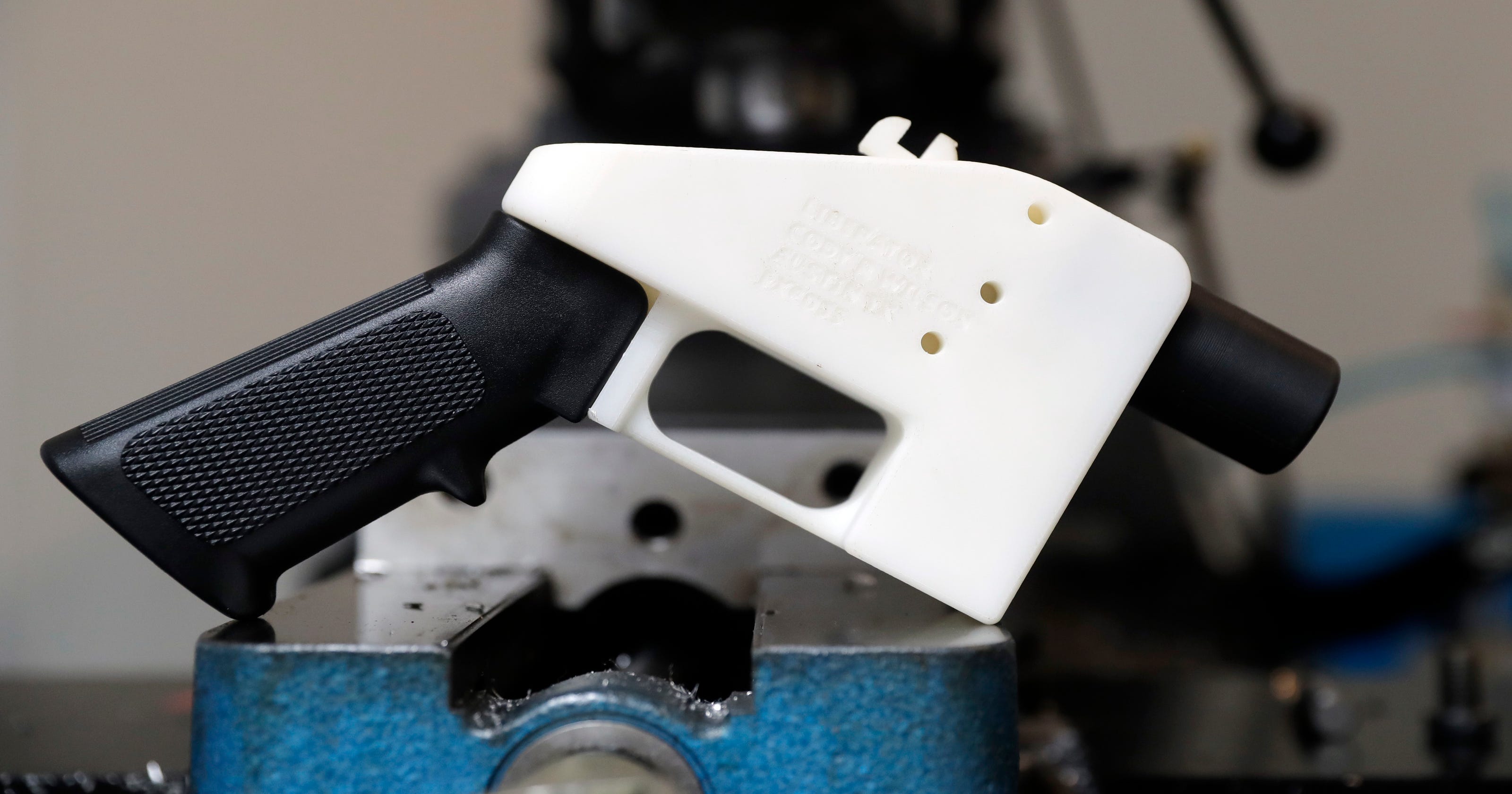
Defense Distributed, a nonprofit company based in Texas, sells blueprints online for people to 3d print their own firearms at home. The federal government has temporarily banned the company from selling these plans, despite computer code falling under First Amendment rights and the guns falling under Second Amendment rights. The main issue is that these firearms can be made by anyone with access to a 3d printer and because of that, they’re untraceable. On top of being untraceable, as they are made of plastic, they can evade most conventional security systems.
In August of 2018, the U.S. State Department issued a temporary restraining order to stop Defense Distributed from publishing the digital plans for 3D printed guns. The previous month, the company had challenged an interpretation of federal export law that had prohibited the “publication of plans for 3D guns” and the court reversed their stance. (Johnson, nbcnews.com) This ban came about after “eight states and the District of Columbia filed a joint lawsuit in federal court” in order to stop Defense Distributed from publishing the files. (Ou, Bloomberg.com) These events caused gun rights advocates to publish their own similar files, citing that they were protected under the First Amendment. (Johnson, NBCNews.com)
According to Elaine Ou, a writer for Bloomberg: “Depending on the 3D printer, the parts would take most of a day to complete. This is assuming the operator even has access to a precision printer.” and “Even if made using today's best 3D printing, the guns still aren’t very good. Any material pliable enough to feed through a printer will have trouble surviving the pressure and temperature required to propel a bullet at thousands of feet per second.” (Ou, Bloomberg.com) These two statements contradict the argument made by several states in the lawsuit against the U.S. Government: “A group of 19 U.S. states and the District of Columbia sued the U.S. government in July, arguing that publishing the blueprints would allow criminals easy access to weapons.” (Bellon, reuters.com)
According to Individualism, which focuses on the business and how it operates, Defense Distributed was acting morally because they were operating within the confines of the law at the time and acted in their own best interests in order to maximize profit.
Under Utilitarianism, an ethical way of thinking that focuses on maximizing the happiness of conscious being, Defense Distributed failed as their operation caused a lot of controversy, and raised both legal problems as well as moral problems, such as what is covered under free speech and can exceptions be made?
Defense Distributed ethically passed Kantianism, a theory that respects the choices of individuals without influencing them or manipulating them. The business is based on selling blueprints and there was a demand for those blueprints. The consumers understood what they were buying and Defense Distributed did not hide any information.
Virtue Theory, the last the four ethical theories discussed here, probes the character of business. If the business is engaging in morally sound practices, it is more likely to be considered virtuous. Defense Distributed would be considered courageous, due to challenging the court over what they believed to be their rights. It would also be honest and temperament, as they never hid anything and acted responsibly. The last virtue is justice, and despite being a company that hasn’t done anything wrong legally, they do enable the production of weapons that can be used for violence, which would go against this theory.
This article was based on the research paper "Defense Distributed, 3D Printers, and the Constitution (2018)" written by Garrett Franklin
References:
“About.” Defense Distributed, defdist.org/about/.
Bellon, Tina. “3-D Printed Gun Blueprints for Sale after U.S. Court Order, Group Says.” Reuters, Thomson Reuters, 28 Aug. 2018, www.reuters.com/article/us-usa-court-guns/3-d-printed-gun-blueprints-for-sale-after-u-s-court-order-group-says-idUSKCN1LD2AN.
Feldman, Noah. “The First Amendment Protects Plans for 3-D Guns.” Bloomberg.com, Bloomberg, 1 Aug. 2018, www.bloomberg.com/opinion/articles/2018-08-01/3-d-printed-guns-are-protected-by-first-amendment.
Johnson, Alex. “Gun Rights Activists Post Plans for 3D Firearms after Judge's Order Blocking Them.” NBCNews.com, NBCUniversal News Group, 1 Aug. 2018, www.nbcnews.com/news/us-news/gun-rights-activists-post-plans-3d-firearms-after-judge-s-n896411.
Kruzman, Diana, and Tea Kvetenadze. “Factbox: What Are 3-D Printed Guns?” Reuters, Thomson Reuters, 31 July 2018, www.reuters.com/article/us-usa-trump-guns-factbox/factbox-what-are-3-d-printed-guns-idUSKBN1KL2KR.
Ou, Elaine. “Yes, Anyone Can Print a Gun at Home. But Not a Very Good One.” Bloomberg.com, Bloomberg, 1 Aug. 2018, www.bloomberg.com/opinion/articles/2018-08-01/3d-printable-guns-are-possible-but-not-good-guns.
Young, Elise. “New Jersey Outlaws Untraceable ‘Ghost Guns,’ 3-D Printing of Firearms.” Bloomberg.com, Bloomberg, 8 Nov. 2018, www.bloomberg.com/news/articles/2018-11-08/n-j-outlaws-untraceable-ghost-guns-3-d-printing-of-firearms?cmpid==socialflow-twitter-politics&utm_campaign=socialflow-organic&utm_source=twitter&utm_medium=social&utm_content=politics.







